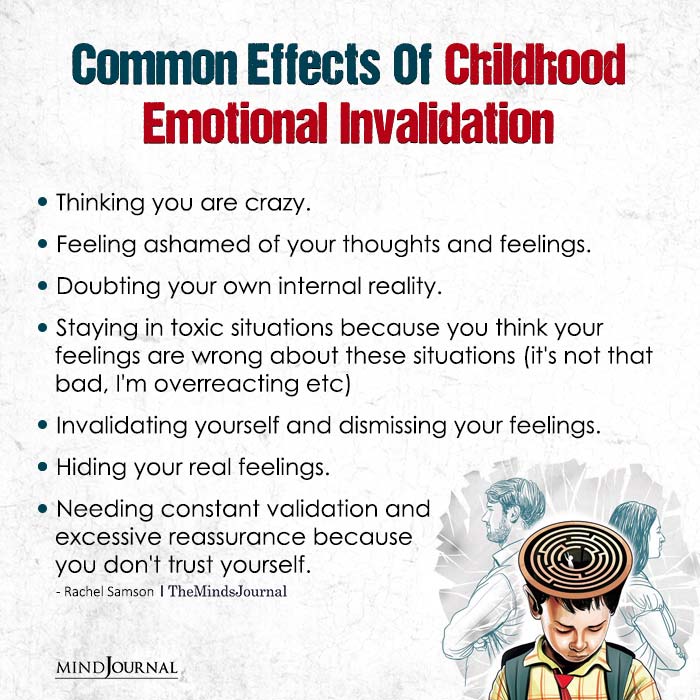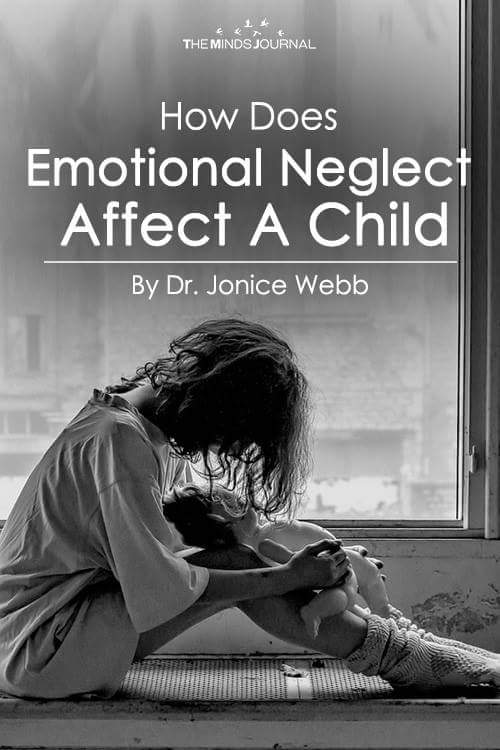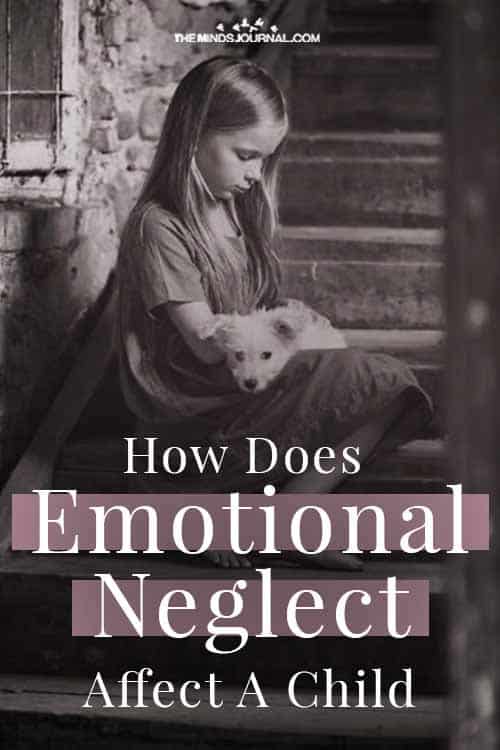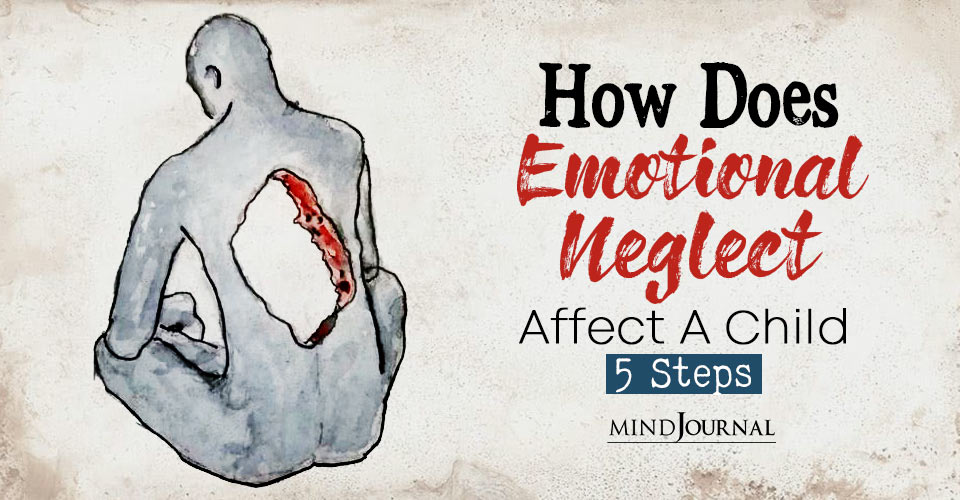As a child, did you experience emotional neglect from your parents? Though they provided you with everything, it seemed like they didn’t understand you?
Childhood Emotional Neglect (CEN) happens when the parent fails to respond enough to the child’s emotional needs.
The truth is that parents fail to notice their children’s emotions in every family in every household in the world every single day. And that is A-Okay. No parent can, or should, be 100% aware of his child’s feelings all the time, and that is not a requirement to be a good parent.
Childhood Emotional Neglect only happens when the parent fails to notice the child’s emotions enough.
Every child is born with a certain threshold of need for emotional connection, validation, and responsiveness from his or her parents.
As a child, your parents may meet your needs sometimes, in some ways. But they may fail you in small, everyday ways that add up over time. And this may leave the footprint of Childhood Emotional Neglect upon you.
First, let’s take a painful peek at Emotional Neglect in action, actually happening to a child.
Related: 8 Things You Can Relate To If You Were Emotionally Neglected As A Child
How Does Emotional Neglect Affect A Child: 5 Steps
Althea, Age 4
Happily skipping to her mother’s car, Althea gets distracted by the neighbor’s dog Bruno, who she loves, and in whom she takes great delight.
Seeing that her mom is looking for her keys in her purse, she runs over to Bruno and says in a voice she usually uses only for dolls and dogs, “Hi Cutie, what are you gonna do today, huh Boy?” Bruno responds with licks and kisses and love, and Althea is instantly absorbed in the delight of Bruno. But this warm moment is disrupted suddenly by Althea’s mom.
“Althea!” she yells in a frustrated and impatient voice. “What are you doing? I told you it’s time to go! Get in the back seat right now. I’m tired of waiting for your distractions!”
Startled and taken from joy to hurt in the period of 2 seconds, Althea withdraws her hand from the licks and runs rapidly to the car, feeling ashamed.
Strapped into the back seat, she tries to catch a glimpse of her mom’s face in the rearview mirror as they’re driving to see if she’s still angry. All she sees is a blank expression in the reflection, making it impossible to tell.

Althea, Age 11
Althea lies on her bed trying to do her homework but it’s impossible for her to focus. Her brain keeps replaying an incident that happened earlier that day in which her teacher singled her out in science class, calling her a “slow learner” in front of her friends and classmates.
Althea knew she had an A average in the class, and her dream was to become a doctor. She was having a great deal of trouble swallowing the humiliation, disappointment, and unfairness of it all.
Through the walls of her room came the sounds of her father and sister laughing and talking. Everyone else in the world seemed happy and fine to Althea at that moment.
“I don’t understand. What did I do wrong? What should I do? What does this mean?” These questions kept replaying over and over and over in Althea’s head. Deep down she knew there were no answers.
Emotional Neglect is seldom dramatic. Instead, it is usually small and subtle and dwells in everyday events like those we just saw in Althea’s life.
As you can see, Althea is not experiencing abuse or attacks. An outsider would see a typical mom in a hurry in the first scenario, and a typical “moody teen” in the second. But for Althea, there is far more going on.
The problem for Althea is that scenes like the two above do not punctuate her growing up years, they define her growing up years. Althea’s mom is usually irritable and almost always in a hurry, breaking up Althea’s joy as if there is something selfish or indulgent about being happy.
Initially, a bright, happy child, Althea has learned that she should keep her joy under wraps, and her needs minimal. At age 11 she has already learned that she is on her own.
Related: The Lifelong Effects of Childhood Neglect By Parents
How Does Emotional Neglect Affect A Child?
Here are 5 Steps:
- The child receives the message that all or some of his feelings and emotional needs are not tolerated or accepted in his childhood home.
- The child builds a wall to block off her emotions, so as not to burden her parents.
- The child realizes that he is alone in the world, and must solve his own problems and meet his own needs.
- Likely the child’s parents come through for him emotionally sometimes, in certain situations.
- The child grows up recalling the times her parents were there for him. She has little to no awareness of the endless everyday moments when her joy was killed, her anger squelched, or her needs ignored.
Emotional Neglect can happen in an infinite variety of different ways. But no matter how it happens in your household, Emotional Neglect is the silent killer of a child’s spirit.
Althea’s well-meaning parents worked hard and provided their children with all they needed materially.
Related: 8 Things You Can Relate To If You Were Emotionally Neglected As A Child
They took care of everything externally, but they could not give their children what they did not have themselves: emotional awareness, emotional validation, and true emotional nurturance.
To learn if you grew up with Childhood Emotional Neglect (CEN) Take The Emotional Neglect Test. It’s free.
Want to know more about emotional neglect in childhood? Check this video out below!
Written by Dr. Jonice Webb
This article originally appeared on Dr. Jonice Webb
Printed with permission












Leave a Reply